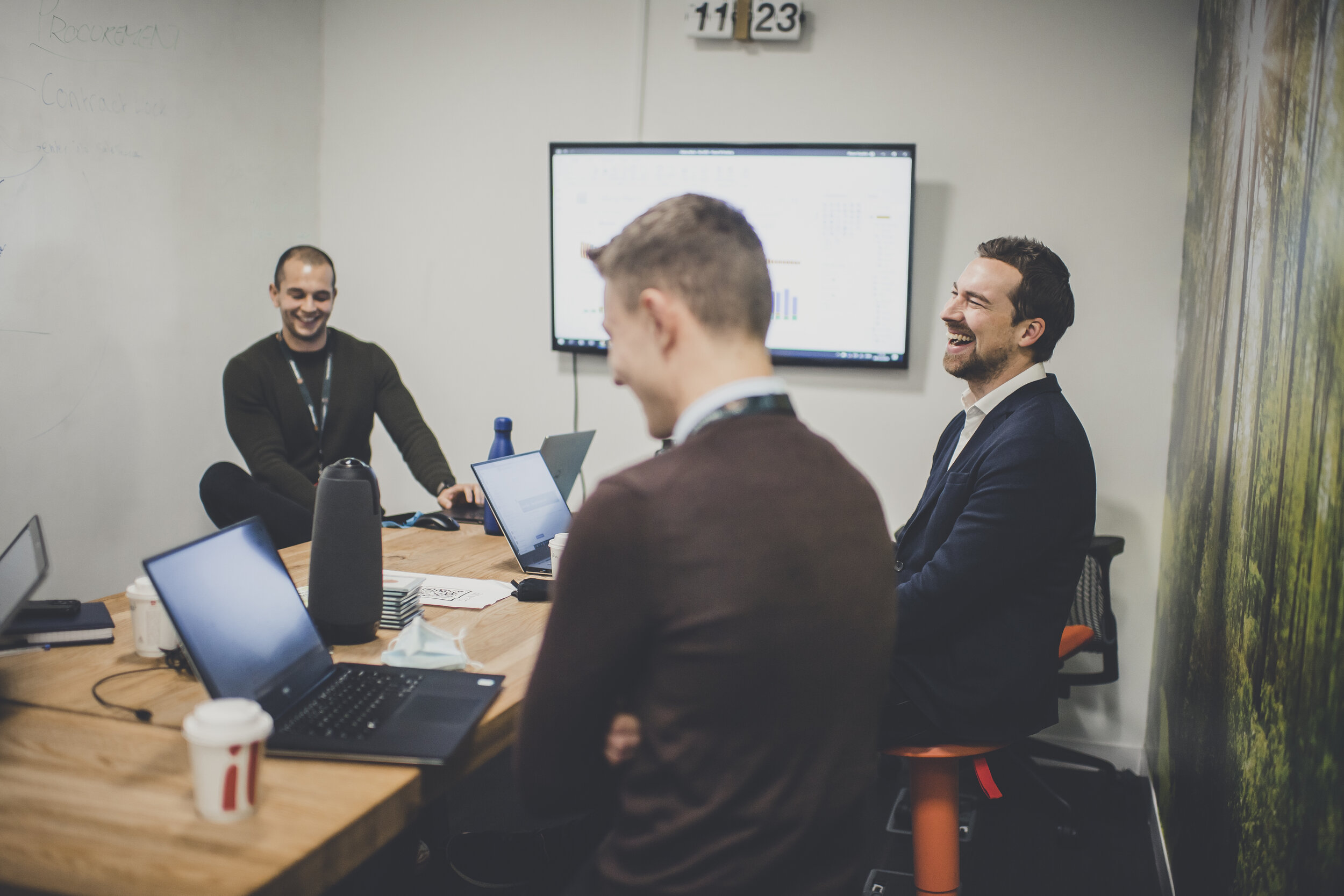May 11, 2021 Jonathan Harries
Net Zero is climbing up the corporate agenda
We’ve been taking a closer look at what operational Net Zero means and how major energy users can set about achieving it.
People are used to buying products or services based on factors such as trust, quality and cost. However, while those remain important, social and environmental trends have added another element to the buying process.
Growing numbers of consumers and corporations alike are taking an interest in the eco credentials of the things they purchase – something which is drastically changing the way they look at energy.
Not so long ago, energy was just another cost for businesses to keep an eye on. Now, the way it is sourced, managed, and used can be the difference between inspiring customer loyalty and losing them to more environmentally-conscious competitors. That is why decision-makers need to take action in the most strategic and sustainable way possible.
Getting to Net Zero
Acknowledging the need for rapid decarbonisation, businesses across the globe are introducing Net Zero targets – reassuring customers, investors and employees that they are doing what they can to tackle climate change. But the declaration is always the easiest part. Taking the necessary action to deliver on that promise is a different story altogether, hence why so many are now asking themselves and others: “How do we actually deliver on this?”
While we realise that being truly sustainable is about much more than carbon emissions – factors such as supply chains and employment practices are all key – energy use needs to be at the heart of this conversation. Operational Net Zero is a target that businesses of every size and sector should be aiming for, and there are numerous ways of achieving it – some of which are attracting widespread support.
Take the strategies being put forward by the UK Green Building Council (UKGBC) and the World Green Building Council (WorldGBC) for example. According to their guidance, new structures should be built to standards driven by sustainability and those already standing should be adapted, retrofitted with the technology they need to better control consumption. They believe that energy-use reduction needs to be prioritised over all other measures.
Efficiency first
The UKGBC and WorldGBC emphasise the importance of reducing energy demand. They do this not only to deter developers and operators from paying lip service to sustainability, but also to encourage them to put efficiency first, before even considering things such as offsetting.
As countries and companies have become increasingly climate-conscious, many have turned towards tree planting to counterbalance their carbon emissions. But as pressure mounts on businesses to do more sooner, we believe this will change.
With some newly-planted trees taking up to 20 years to capture the amount of CO2 promised by offsetting schemes, we need to start looking at solutions that will deliver more immediate results.
It is like we say to our clients: “There are no shortcuts to net zero, and all the other paths available simply cannot get us there in time.”
While offsetting undoubtedly has its part to play on the road to operational net zero, those who can afford to make meaningful changes sooner rather later should do so.

Sustainable procurement
When we support businesses that are on the path to operational Net Zero, we reiterate the simple fact that now is not the time to be ‘greenwashing’ the reality of our situation – and this applies to green tariffs as well as offsetting.
While we wish it were this simple, sourcing energy from renewable sources is not enough to get a business, let alone the planet, to where it needs to be. Like all contracts, green energy contacts – which can last anything from one to five years – all come to an end eventually and therefore render sustainability strategies vulnerable to changing circumstances.
If your plan to decarbonise depends on eco-friendly procurement, that is fine up to a point. But what if a financial saving needs to be made and the switch from green to brown energy will help make it?
One of the key benefits of putting energy-use reduction at the heart of a sustainability strategy is that there are very few reasons to reverse those changes once they have been made.
Businesses also need to be wary of the pitfalls associated with switching to green tariffs. There are numerous so-called “100% renewable” tariffs on the market which – once you scratch a little below the surface – are not as green as they seem. Some energy suppliers will buy cheap certificates to match the use of their customers, making their fuel mix appear greener than it really is.
Fortunately, this can be guarded against by on-site generation and storage. Not only does the use of solar panels allow businesses to produce energy independently from the grid, but it also frees them up to concentrate on other things – without having to worry about where their energy is coming from.
What is more, investing in offsite renewables may also provide useful ‘additionality’ to any major energy user looking to diversify their sustainability strategy.
Controlling costs
It is often said that sustainability comes at a cost – that it does not stimulate enough growth to be a genuine priority for businesses – but many of the clients we work with continue to find that better conservation and use of energy results in a more streamlined operation and decreased, rather than increased, costs.
Low-price projects can result in a quick return on investment, especially when they focus on making energy-use more efficient (e.g. installing LED lighting controls). And at the more expensive end of that spectrum, you find PV and battery schemes, which can be funded by third parties.
Unfortunately, however, all sorts of sustainable investment are being put on hold, with high levels of uncertainty engulfing most sectors. As a result, the phrase ‘net zero’ has practically fallen from the vocabulary of many businesses as they attempt to survive this period.
Financial control is key at the moment. But once the coronavirus restrictions are lifted and the industries hit hardest by the lockdown start to stabilise, any future inaction will not be forgiven – specifically not by the people working within those industries.
Making sustainability accessible
Research has shown that a growing percentage of the UK workforce want employers to do right by the planet. In 2020, a Unily survey of 2,000 people revealed that 83% felt that the businesses they worked for were not doing enough to address climate change.
But rather than be discouraged by this data, C-suites across the country should be looking at this as an opportunity to boost employee engagement and bring staff with them on the journey to Net Zero – and one of the ways they can do this is through behaviour change.
Over recent years, there has been a spike in the number of employers looking to encourage their staff to adopt more sustainable practices in work, such as keeping their energy use to a minimum. Multisite businesses with access to their energy data have even been using it to create league tables to show which of their teams has saved the most energy – creating a healthy sense of competition and delivering tangible savings at the same time.
There are many famous examples of employers reaping the benefits of allowing their employees to champion sustainability. Back in 2015, workers at the PG Tips factory in Trafford Park had the brilliant idea of reducing the end seals of their tea bags by 3mm. This one decision alone stopped 9.30 tonnes of paper from being needlessly wasted.
Who says small operational changes can’t make a huge impact?

What can be done
There are no shortage of ways businesses can boost their drive towards operational net zero. Offsetting and green tariffs both have roles to play, but they must form part of a much larger strategy – one which has efficiency at its core. Energy-use reduction will enable major users to decarbonise sooner, and we look forward to helping many of them on their journeys.
The situation we all currently find ourselves in – and the environmental, economic and political side-effects – is unprecedented. Fortunately, however, one of the few silver linings of this pandemic is that it appears to have created a perfect storm of action.
Whether it is due to an awaking to the climate crisis or a sudden realisation that consumers and employees want more, Net Zero is rapidly climbing the list of corporate priorities and changing the way the majority of businesses treat energy – and about time, too.
Instead of feeling overwhelmed by their own sustainability commitments, decision-makers should be optimistic. Why? Because, for the first time ever, there seems to be a solution capable of matching the problem. Through taking an ‘efficiency first’ approach to achieving operational Net Zero, businesses will be able to make a truly long-term and long-lasting impact for the better.